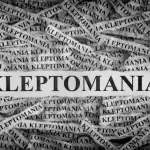CFR is an abbreviation for the phrase Cost and Freight. This phrase means that a seller is required to pay the cost of goods plus freight charges required to transport those good to the port of destination. CFR requires that a seller clears goods for export. However, the risk associated to damages or loss of goods along with any other additional costs that may arise due to events that may occur after goods have been brought onboard a ship is carried on to the buyer. This is done after the goods get over the vessel’s rail at the port of shipment. The cost and freight phrase is only applied to inland waterway and sea transport. Where the vessel’s rail does not serve a practical reason like container traffic, roll off or roll on, then the CFR phrase is not applicable.
A Seller’s Responsibilities
Under CFR, a seller is required to provide goods in line with the provisions of the contract of sale. The goods must be accompanied by a commercial invoice or its equal in electronic version. The seller must also obtain an export license and any other formal authorizations and undertake all custom processes required to export the goods at his or her own cost and risk. The seller also undertakes to transport goods until they arrive at the port of destination where they are loaded onto a ship. While on transit to the port, the seller is under no obligation to insure the goods. However, the seller has the obligation to deliver those goods to the shipping vessel at port of shipment on the agreed date or within the stipulated period. With respect to transmission of risks, seller is obligated to carry all risks associated with loss or damage to goods until such goods are passed on to the ship rail at the port of shipment subject to B.5 provisions.








